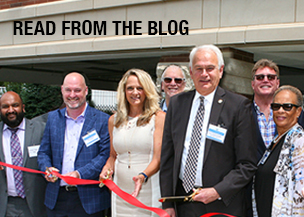Right off the Jackie Robinson Highway on Cypress Ave. you can see a new towering brick-red apartment building.The building is WellLife Network’s newest addition to their housing program, a newly built 66-apartment unit building with its own parking lot. One can already see residents moving in from a distance. Leading the charge is Deputy Director of Mental Health, Marcel.
When I met Marcel he was finishing up a budget meeting, “nowadays I am practically jumping from meeting to meeting,” he said. Marcel began his employment at WellLife nearly 11 years ago as a Direct Support Professional, or DSP, where he helped individuals 1-on-1 with their daily needs that included recreational support and hygiene. Soon afterwards, he became a Case Manager working with individuals in different capacities. Today, Marcel is the Deputy Director of Mental Health at Cypress and four other WellLife Network locations, he works overseeing day-to-day operations, budget meeting, tenant meetings, and policy vacancies.
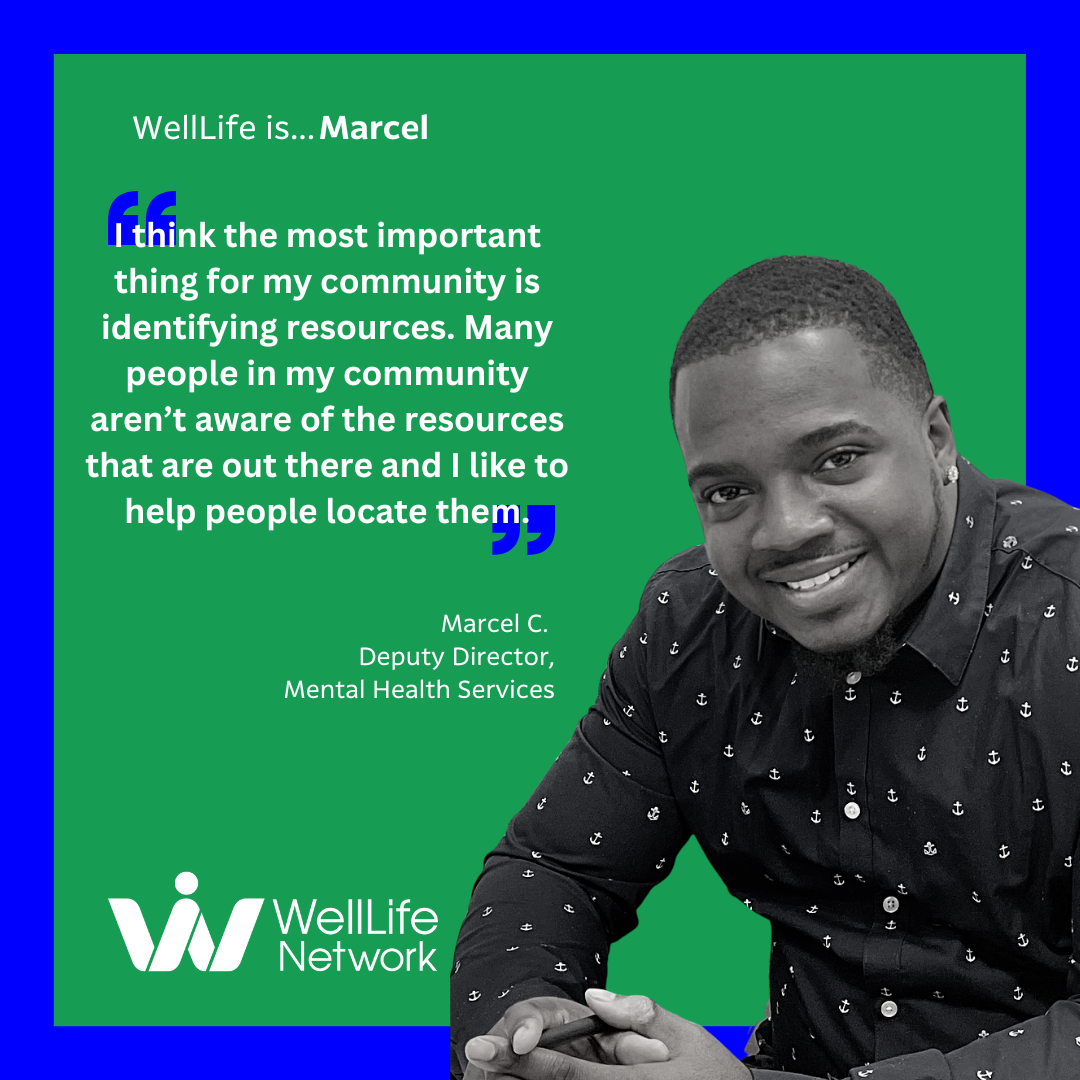
“I think the most important thing for my community is identifying resources,” Marcel said, “many people in my community, be that Cypress or where I am from, aren’t aware of the resources that are out there and I like to help people locate those resources.” His passion is helping individuals in their current state and also preparing them for the future, which is locating food pantries, finding free/low cost mental health services, affordable daycare for children etc. For many individuals receiving benefits, it is mandatory they maintain a certain income to be eligible, if they go above that set income, they lose their benefits. This is what is known as the “benefits cliff” and can be challenging to many individuals living from paycheck to paycheck, even more challenging to those struggling with mental health challenges.
40 of the 66 units are identified as supportive housing for individuals with mental health challenges. Once the tenants moving in settle into their apartment Marcel and his team will begin scheduling monthly tenant meetings to discuss outpatient services, trainings, day programs, tutors for those in school, healthcare accessibility, and recreational trips. “I hold monthly meetings in all of the locations I want the tenants to get the most of out of these meetings,” Marcel said.
The Jamaica, Queens native said his devotion to helping individuals with mental health challenges came from his own experience. While studying for his Bachelors degree he found out that a few of his immediate family members were diagnosed with a metal health condition. Unfortunately, they were diagnosed later in adulthood, “I don’t think you realize it when you’re young or you can’t identify it,” he said, “had someone helped me identify those resources they could have received medical attention sooner.” Recently, Marcel received a commendation from the Nassau County Legislature for creating awareness for Black Men’s Mental Health and Wellness on the occasion of Breaking the ICE: The Black Men’s Mental Health and Wellness conference at Adelphi University and remains active on that matter.
Marcel believes that helping individuals identify resources would help them prepare against obstacles like the “benefit cliff” or recognizing mental health struggles early on. “For me, success in a client looks like seeing them stay resilient, not give up on their goals and taking their time reaching them one by one,” the Deputy Director said,“we as a staff celebrate their small goals because that helps them look forward to the next one.”
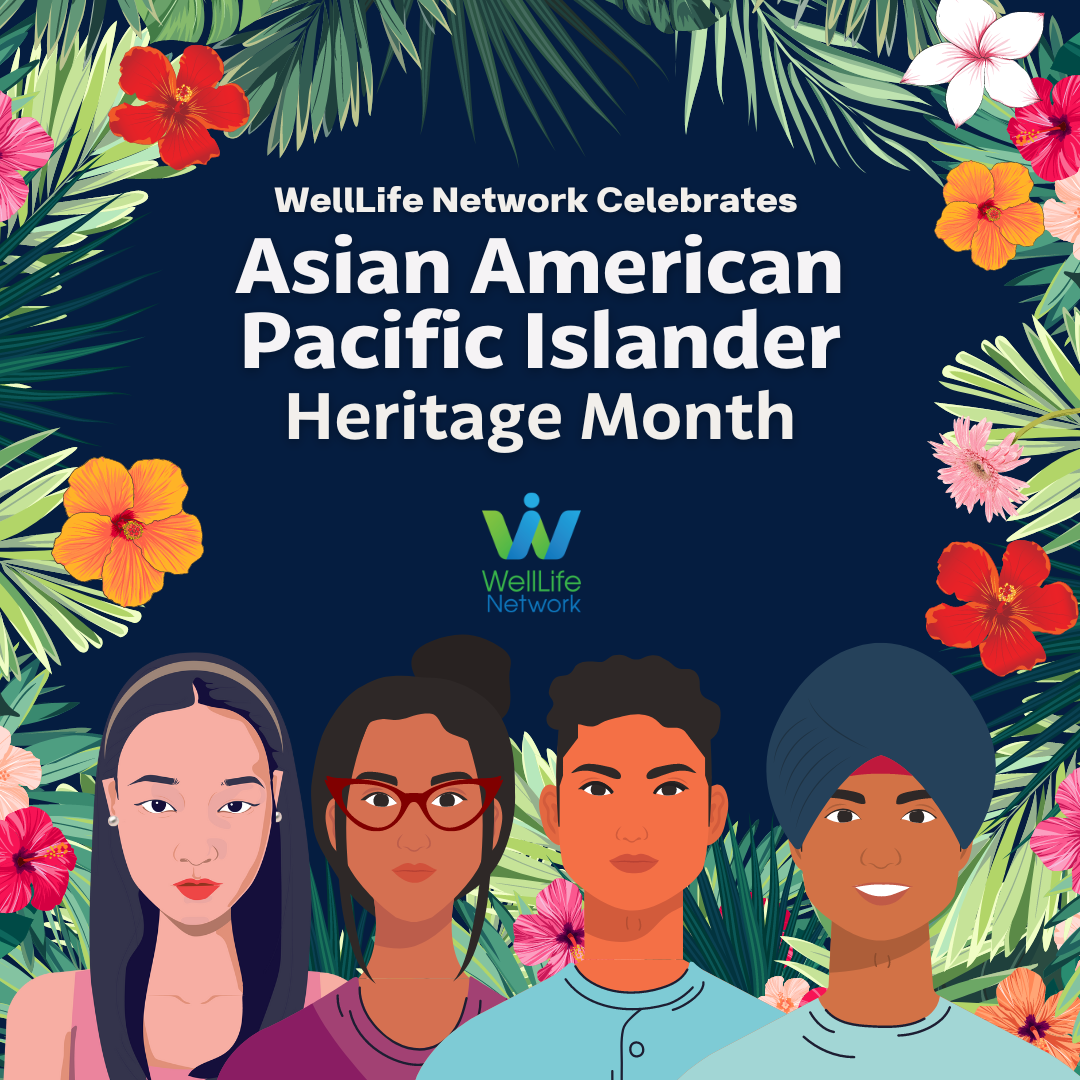
In 1992, the month of May was designated by President George H. W. Bush as Asian Pacific American Heritage Month as a way of paying tribute to the generations of Asian and Pacific Islanders who have enriched America’s history and are instrumental in its future success.
Asian Pacific American Heritage month is important because Asian Americans are an integral part of the nation, our businesses, and communities. At WellLife Network, many staff have this heritage, and contribute to the agency in a significant way. Asian Pacific Americans are sometimes viewed as one block of people, when their experiences can vary vastly amongst all the different nations and groups that are often categorized under this banner. It is always important to recognize the unique contributions of each person for the talents they bring to the world.
In the last few years, racial prejudice against Asian Pacific Americans has escalated. Scapegoating is wrong against any human. The DEI Committee recognizes and supports the Asian Pacific Americans at WellLife Network and across the nation. Thank you for all the contributions you have made to make the world a better place.
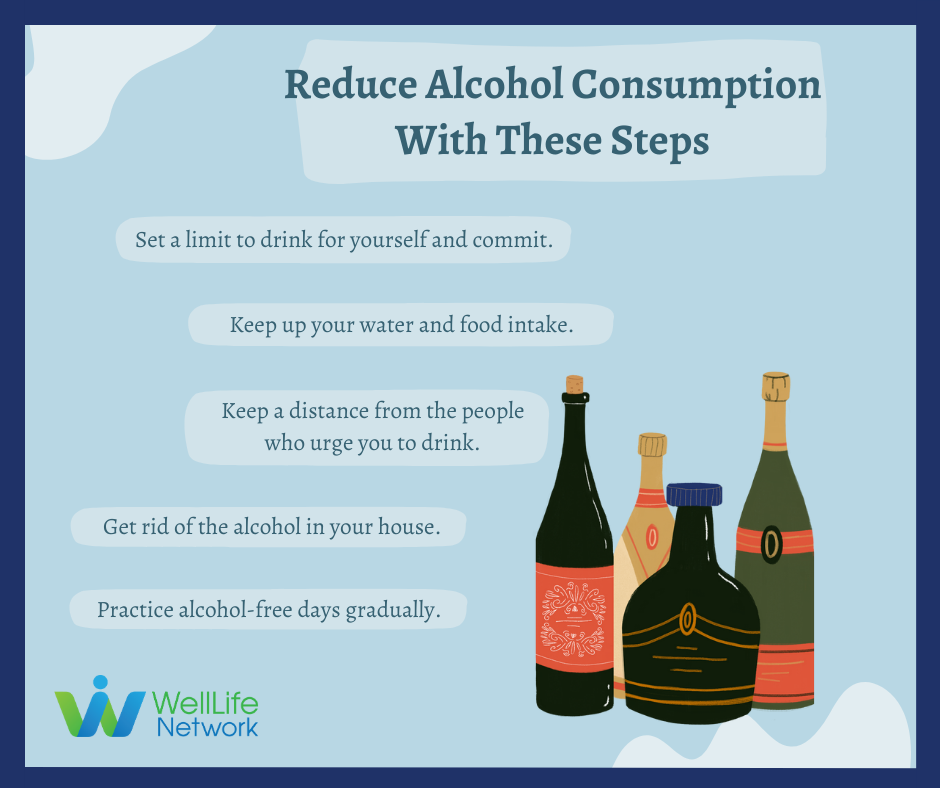
This week is National Drug & Alcohol Facts week. Here are some tips for reducing or eliminating your alcohol consumption:
Set a limit to drinking, for yourself, and commit.
• Set yourself a drink limit and stop once you’ve reached it. Keep up your water and food intake
• If you’re thirsty, reach for water or a non-alcohol alternative instead of alcohol.
• Make sure to alternate your alcoholic drinks with non-alcoholic drinks. A glass of water or a soft drink works well.
• Drinking on an empty stomach will increase the rate that alcohol is metabolized in your body.
• Eating before or while you drink alcohol will help it be absorbed into the bloodstream at a lower rate.
Keep a distance from the people who urge you to drink
• Tell friends and family you want to reduce your drinking.
• It can be a bit tricky with some people. Try practicing standard responses.
• Practice saying “no” to people who encourage drinking–it gets easier with time.
• “I’m pacing myself,” “I am trying to cut back,” or “I want to be healthier” these are some responses you can use if you are feeling pressured.
• Invite out your low-drinking or non-drinking friends–keep each other accountable.
Get rid of the alcohol in your house.
• Avoid stocking up on alcohol on your next trip to the shop.
• When we stockpile alcohol, we are more likely to drink it sooner than we think.
• Easy access is the ultimate enabler. Slowly implement alcohol-free days into your routine.
• If you’re heading out for the night, avoid drinking in rounds.
• If you want to limit how much you drink, the best excuse is to be the designated driver!
• Set a budget for how much you will spend on alcohol in any period.
• Find social alternatives that don’t involve alcohol: the beach, a picnic, or the movies.
Get rid of the alcohol in your house.
• Avoid stocking up on alcohol on your next trip to the shop.
• When we stockpile alcohol, we are more likely to drink it sooner than we think.
• Easy access is the ultimate enabler.
Slowly implement alcohol-free days into your routine.
• If you’re heading out for the night, avoid drinking in rounds.
• If you want to limit how much you drink, the best excuse is to be the designated driver!
• Set a budget for how much you will spend on alcohol in any period.
• Find social alternatives that don’t involve alcohol: the beach, a picnic, or the movies.

Islam is the world’s second-largest religion after Christianity and has more than 1 billion followers. Islam originated in Arabia and spread all over the world.
Ramadan is the ninth month of the Islamic calendar, observed by Muslims worldwide as a month of fasting, prayer, reflection, and community. Ramadan is celebrated as the month during which Muhammad received the initial revelations of what became the Quran, the holy book for Muslims, from God.
This year it will run from March 23 to April 22nd, actually beginning at sundown March 22nd and ending at sundown April 21st, 2023. As one of the five pillars, or duties, of Islam, fasting during the month of Ramadan is mandatory for all healthy adult Muslims. Children who have not reached puberty, the elderly, those who are physically or mentally incapable of fasting, pregnant women, breastfeeding mothers, and travelers are exempt. Menstruating women are also exempt from fasting.
There are 3 stages of Ramadan. 1st (First 10 days) – Mercy of Allah (Rahmah). 2nd (Second 10 days) - Forgiveness of Allah (Maghfirah). 3rd(Final 10 days)-Safety from the Hellfire (Nijat).
During Ramadan, Muslims abstain from eating any food, drinking any liquids, smoking cigarettes, and engaging in any sexual activity from dawn to sunset. They eat one meal just before dawn and another after sunset. Taking medication (even if you swallow a pill dry, without drinking any water, is forbidden.)
If someone observing Ramadan becomes sick, it should be fine to break the fast, and they only need to make up another day after Ramadan. You must make up for the days that were missed.
Health Benefits? Ramadan fasting increases the red blood cells, white blood cells, platelet count, and high-density lipoprotein cholesterol and decreases the blood cholesterol, triglycerides, low-density lipoprotein cholesterol, and very low-density lipoprotein cholesterol. Ramadan is a fantastic detox for the body by clearing your digestive system throughout the month. Some experts say it even improves your mental health!
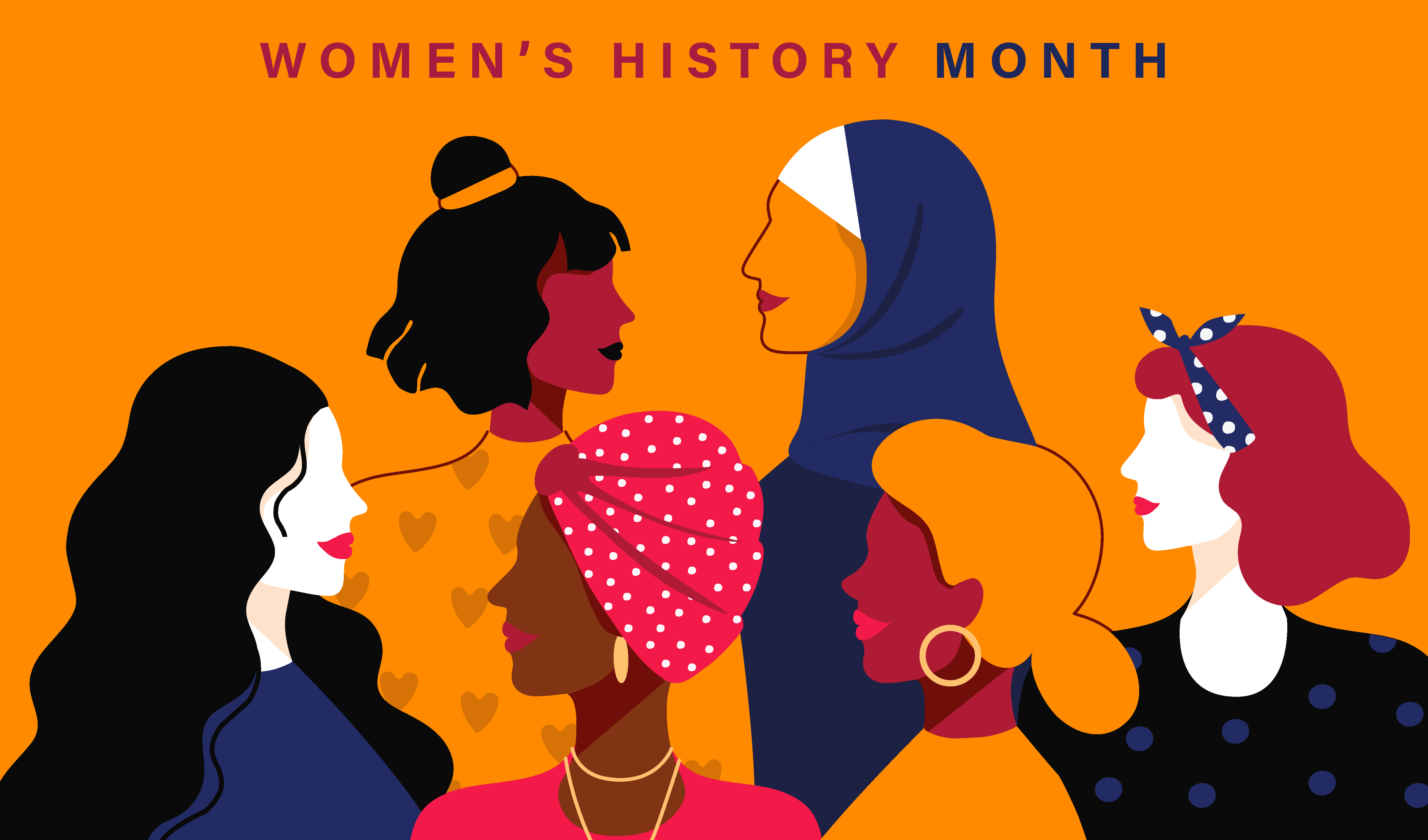
March is Women's History Month which provides an opportunity to recognize and honor the visionary generations of innovative and trailblazing women and girls who have made vast and varied contributions that have shaped our progress as a society and strengthened our character.
The influence of Women and our contributions are being celebrated all over the world. March 8 is International Womens Day, where we recognize women's accomplishments and remarkable worldwide impact. This March 2023, The WellLife DEI Committee would like to highlight a few of these extraordinary women.
Indira Gandhi — The first female Prime Minister of India
Marie Curie — The first woman to win the Nobel Prize in Science
Malala Yousafzai — The Youngest recipient of the Nobel Prize (at age 14!!) for her activities for girls/women's rights
Mia Motley — The first female Prime Minister of Barbados
Imelda Nava — Mexican Women's and gender rights advocate
Hedy Lamarr — Wireless Communication
Marion Donovan — Disposable Diapers
Ada Harris — The Hair Straightener
Chien-Shiung Wu — Nuclear Physics
Katanji Brown — First African American Supreme Court Justice
Ellen Ochoa — First Hispanic woman in the world to go into space
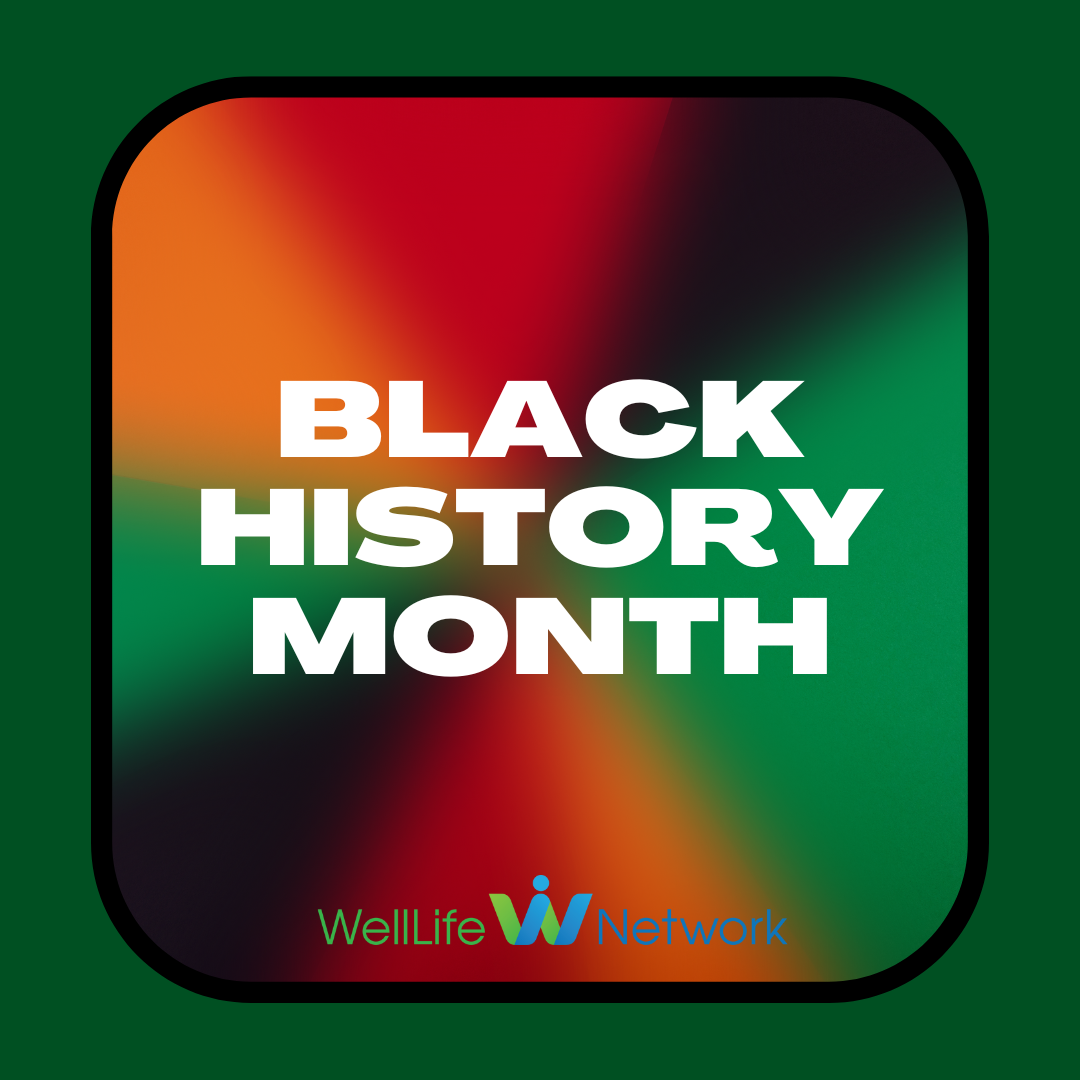
February is Black History Month, a period in which to reflect upon and better educate ourselves about how African Americans, and their rich and vast culture, have contributed to the shaping of modern society...
In 1891 Phillip Downing invented the outdoor mailbox that featured a hinged door that kept the letters secure and kept the snow and rain out.
In 1922, Garrett Morgan invented the three-light traffic system.
In 1887, Alexander Miles invented automatic elevator doors.
In 1889, John Purdy invented the folding chair.
In 1872, Thomas Elkins invented the modern toilet.
In 1919, Alice H. Parker invented the gas-heating furnace.
In 1964, Otis Boykin created the pacemaker.
More recently, the creation of VOIP (Voice Over Internet Protocol) is credited to Dr. Marian Croak; Dr. Kizzmekia Corbett and her team are widely regarded as the scientists that developed the components of the COVID 19 Vaccine marking a turning point in the global pandemic.
Today, there is a consistent effort to eliminate the teaching of African American History from the educational system in the United States. The accomplishments, contributions, and suffering of African Americans are part of the American story and should not be relegated to just a month but should be a required part of our educational curriculum.
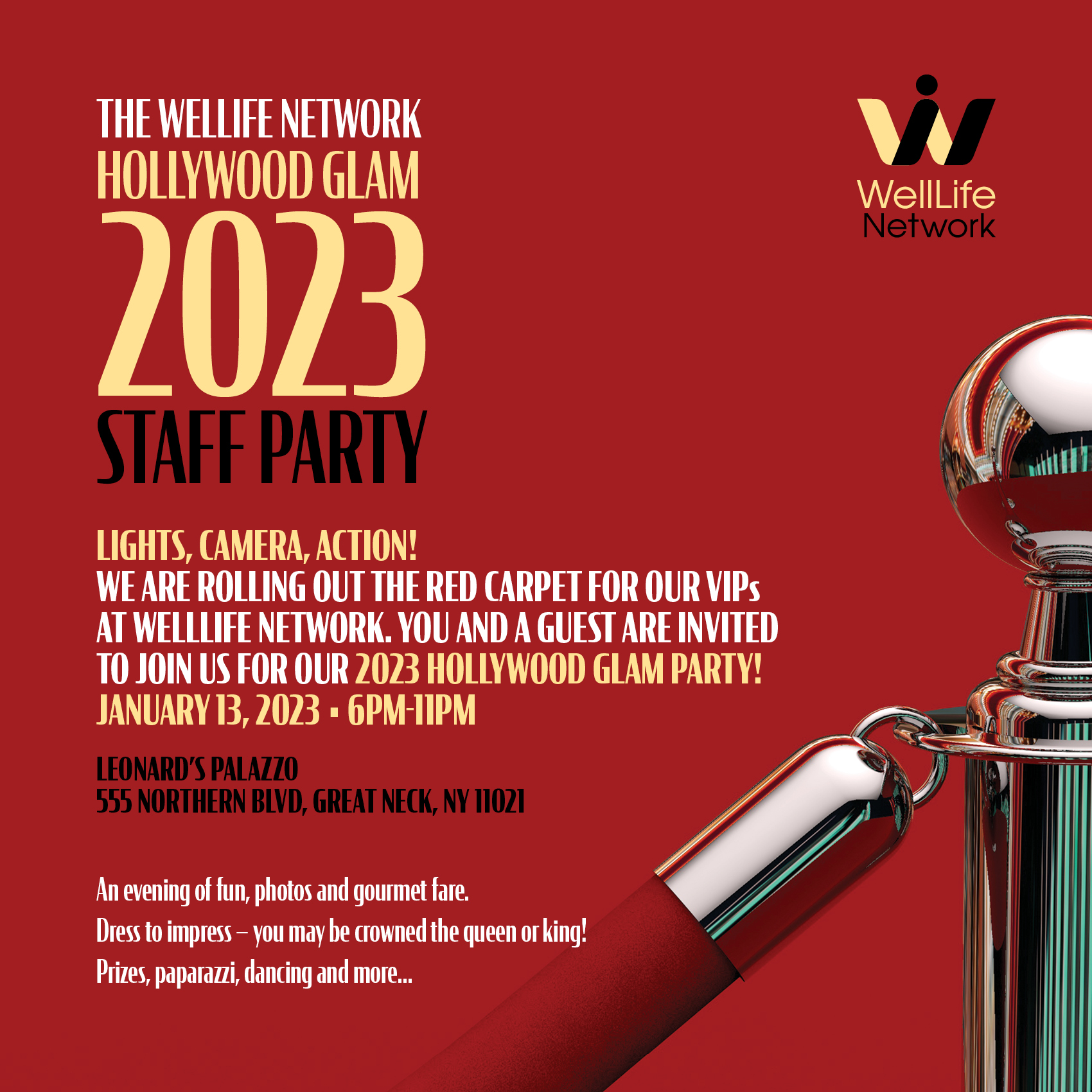
Self-Portrait Project will be providing a photobooth for the event.
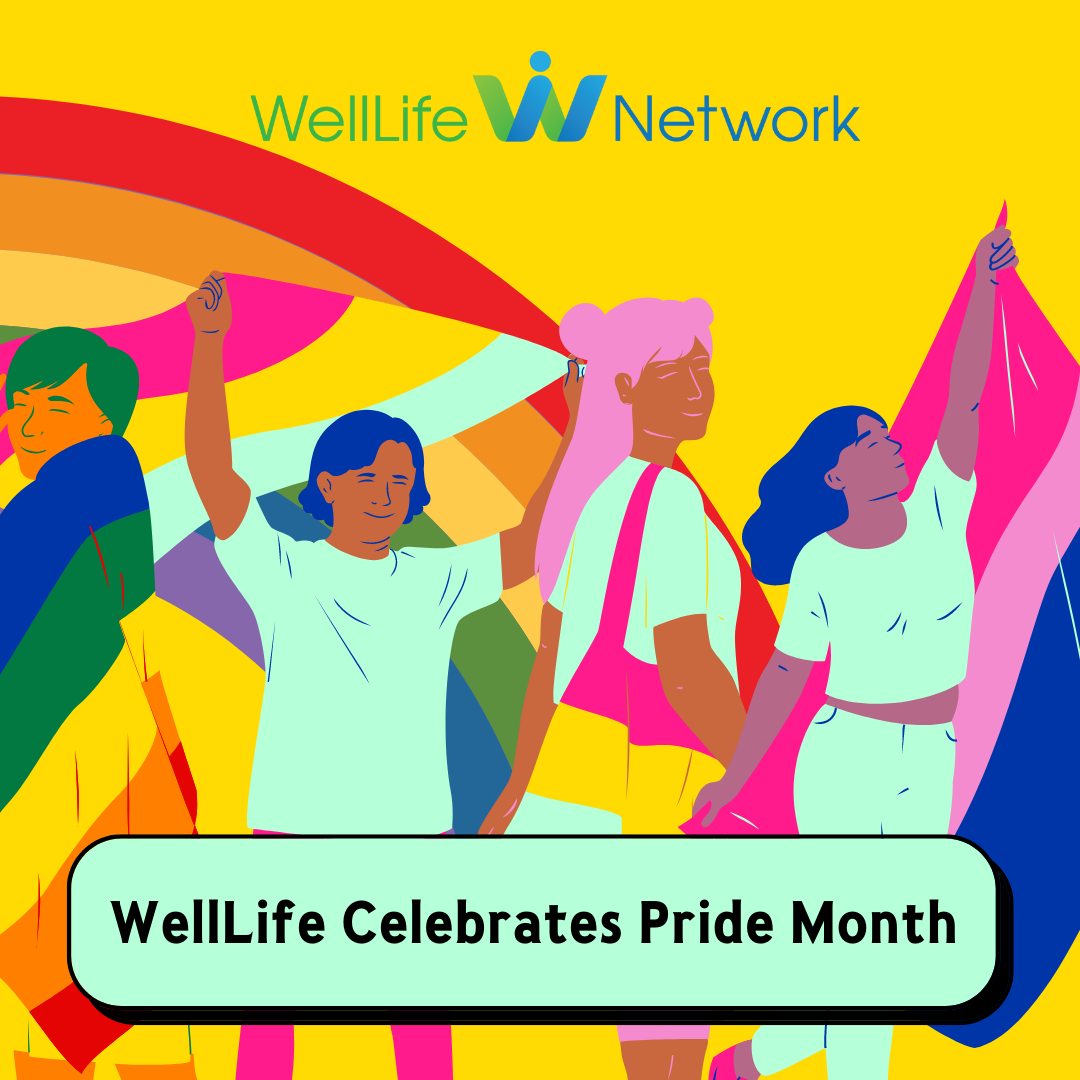
WellLife Network is proud to celebrate our LGBTQIA+ community. We strive to be a place for all to express and connect with their most authentic self. We encourage you to read this amazing resource guide put together by our Learning and Development Specialist, Danielle Viscosi (she/her).
Why is it called Pride Month?
Brenda Howard, a bisexual woman, and staunch advocate began to use the term ‘Pride’ after the Stonewall Riots. At that time, people were regularly jailed for “homosexual activity”, sent to mental institutions to "cure" their sexuality, and shunned by their families, jobs, and communities for coming out. In many ways, Stonewall was not a celebration, (like many contemporary Pride events), but a revolt against oppressive laws and stifling societal values — a revolt that encouraged the LGBTQIA+ community to speak up proudly instead of hiding.
How to be a LGBTQIA+ ally
• Let LGBTQIA+ people lead.
• Check your privilege.
• Confront your own prejudices and bias, even if it is uncomfortable to do so.
• Be a listener.
• Be open-minded.
• Be willing to talk.
• Continue to educate yourself and others around you.
• Read up on the myriad of issues related to the LGBTQIA+ community and see if there is anything you can do to support or help.
• Dispel myths you have related to being LGBTQIA+.
• Provide direct mutual aid to LGBTQIA+ people in need.
• Use gender neutral and inclusive language.
• Use the correct pronouns (we all have pronouns).
• Add your pronouns to your work e-mail signature.
• Stand up for LGBTQIA+ people when they are not around.
• Defend LGBTQIA+ people against discrimination.
• Be inclusive and treat your LGBTQIA+ friends or family the same as anyone else.
• Never use a transgender person’s deadname or old pronouns.
• Do not ask offensive questions about a person’s sex life or genitalia.
• Do not expect to be rewarded for being a good ally.
• Do not assume a person’s gender, pronouns, or sexual orientation.
• Do not joke about the LGBTQIA+ community, or use slurs related to being gay or trans.
• Believe that all people, regardless of gender identity and sexual orientation, should be treated with dignity and respect.
Educational Resources
Further Reading
The Hirschfeld Archives: Violence, Death, and Modern Queer Culture (free PDF)
Transgender History by Susan Stryker
Access to healthy food is a cornerstone for wellness. According to Feeding American, 1 in 9 people struggle with food insecurity. Typically, food insecurity goes hand-in-hand with housing insecurity; many families are faced with the choice of either eating or losing their home. The US manufactures enough food to feed 10 billion people, the US alone has a population around 330 million, according the US Census. Some state laws mandate supermarkets to throw out their unbought food.
In addition, big chain supermarkets are known to throw away their food when they are one day past due regardless of if it the food is actually spoiled or not. In fact, each year 108 billion pounds of food is wasted in the US and nearly 40% of all food in the country is thrown out. While there are programs that help people with food insecurity, such as SNAP, better known as “food stamps,” or TEFAP or WIC, not everyone qualifies. There are also known food pantries, like FoodBank of NY, or churches that donate food to people with low income, however some of those places only donate monthly.
Understanding the basics of healthy cooking can making shopping much easier and help you stretch out that dollar. So, what makes up a “healthy meal”? A balance of protein, carbs, fiber, and fats. Making a healthy meal for under $20 that feeds a family of 4 may not seem like a challenge. However, with the incoming recession, inflation, price gouging, and food shortages, it is easy to see why people around the US are struggling. Another factor to consider is the cost of living for NYC, a loaf of bread could cost $4 in Queens and $8 in Manhattan. With all this in mind, I have set out to make a healthy meal for 4 for under $20 and teach you how you can do the same. The protein lies in the black beans and the beef, brown rice for complex carbs and tomatoes and kale for fiber. The 16oz pack of rice could 6 people if rationed correctly and you can even use half the can of beans.
What you will need:
$1.99- 1 bunch of kale
$1.42- 1 can of black beans (15.5 oz)
$1.29- 1 can of diced tomatoes (14.5 oz)
$4.44- Small pack of ground meat (I bought 0.89lb)
$1.59- 16 oz pack of brown rice (I got the brand GOYA, but you can get whichever you have access to)
*$1.50- If you are vegan/vegetarian you can replace the ground beef with a bell pepper
= $10.73 with ground meat
=$7.79 with bell pepper instead
=$12.23 with both
Prep the rice: Rinse the rice to clean away any excess starch. Grab a strainer and rinse under cold water until the water runs clear. For most types of rice, you'll always use a ratio of 1 cup rice to 2 cups water. First, bring the water to a boil. Then stir in rice and salt, you can also add some olive oil or butter. After adding the rice, the temperature of your water will drop, and it'll stop boiling. Let it come back to a gentle simmer. Cover the saucepan and reduce heat to low. Keep the lid on. Check at 30 min. If there is still some water left, no worries, you can drain it out. Let the rice be your indicator, not the water. Turn off the heat, put the lid back on, and let it rest for a few minutes in the steamy saucepan. Use a fork to gently mix the rice to make sure that it doesn’t stick together.
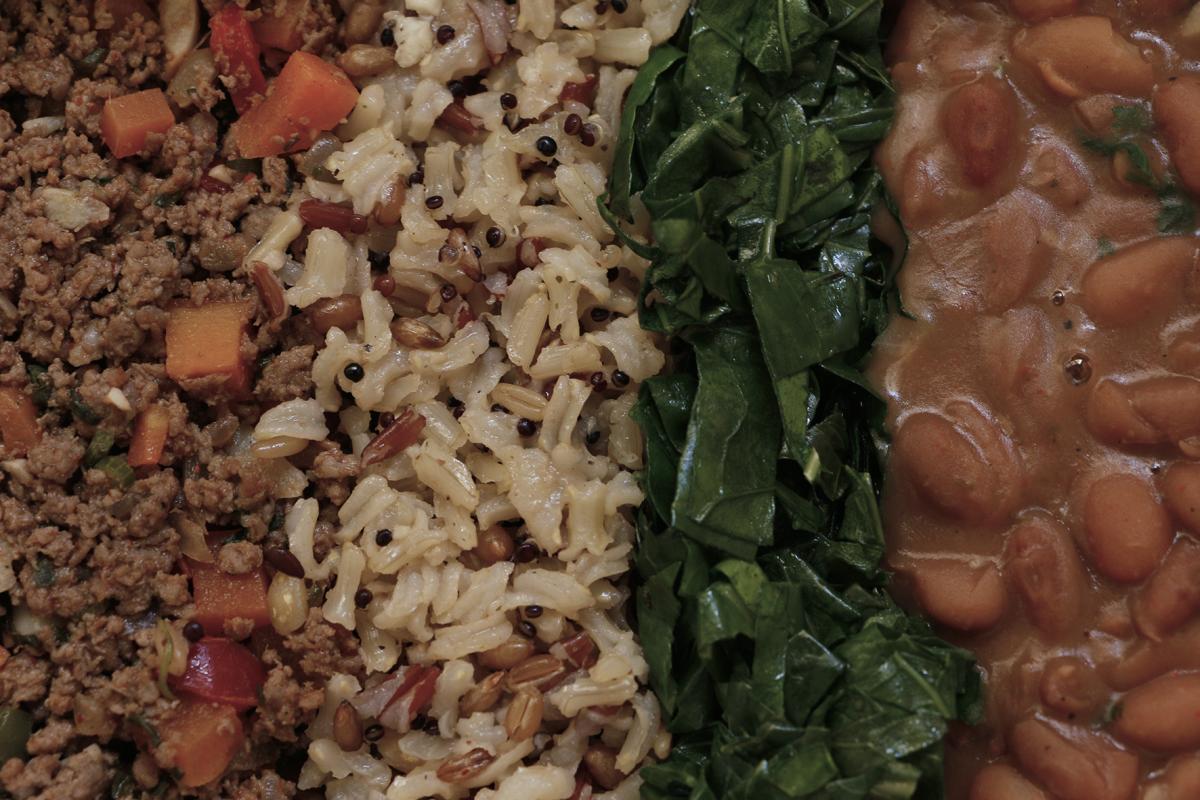
Ground beef with kale, beans and tomatoes
Step 1
Put the ground beef in low pot. You don’t need oil to cook it as ground beef usually cooks in its own fat. Add some salt, pepper, and any other season you would like.
Step 2
Once the beef is brown and cooked, which usually takes around 5-6 minutes you can add the can of tomatoes and kale (chopped, no stems).
Step 3
Check on it after 5 minutes. Make sure the kale is cooked to your liking as it doesn’t take much time to cook it.
Step 4
Finally, open the can of beans, strain them, run them under cold water to wash off the canning residue and put them into your pot. Give it a good mix and leave for 3-4 minutes.
Step 5
Turn it off and you are finished. Serve it over brown rice.
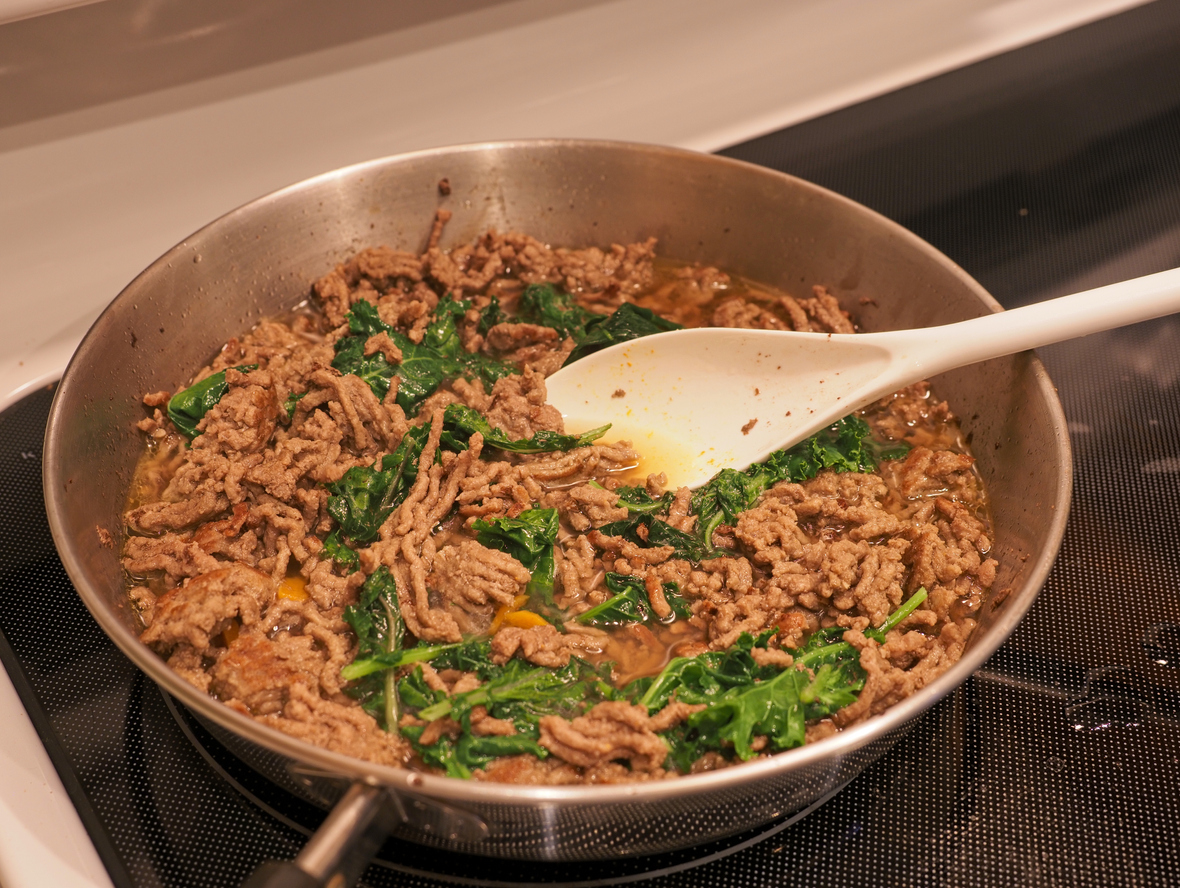
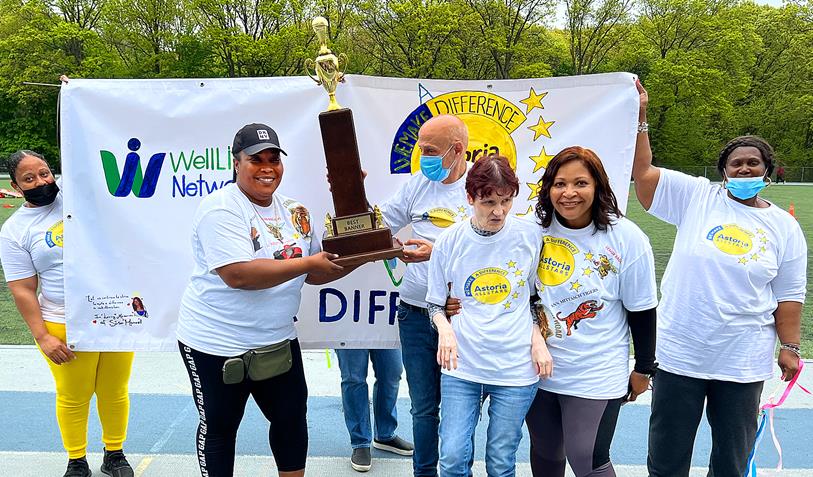
Syndie Leonard-Hamm awards the trophy for best Victory Banner to Michael who participates at WellLife's Astoria Station Day Habilitation "All Stars".
At WellLife Victory Olympic Games "Everyone is a Winner"
"This day was great - look at my medal," exclaimed Richard, who proudly displayed the Olympic medallion he had won at the softball throw competition. This day of wellness took place at the WellLife Network's inaugural Victory Olympic Games. Some 100 participants from WellLife's Day Habilitation programs gathered at Forest Park in Queens to enjoy a day dedicated to developing their physical fitness and experiencing the joys of success! The activities included walks, races, softball and discus throws, bean bag tosses, and a proud display of each program's hand-painted Victory banners.
Building Confidence and Empowerment
This one-day event was created and organized by Syndie Leonard-Hamm, Program Site Director. She designed the event to assist Day Habilitation participants in realizing their innate abilities. "Through sports and wellness activities, WellLife opens their world with acceptance and understanding," said Syndie. "Every person is included and welcomed, regardless of ability or life challenge. As a result of their accomplishments today, we hope that each participant becomes more confident, invigorated, and empowered".
A Dedicated Staff Made this Day a Reality
Syndie received the support of dedicated staff from all of the WellLife Day Habilitation programs, who worked tirelessly to bring this event to reality.
"At the WellLife Victory Games, everyone is a winner!, stated Nadia Hrvatin, Vice President, Developmental Disabilities. "This is truly a Victory event for participants and staff."
In addition to the medals and trophies, each attendee received a certificate of achievement. The mission of the Victory Olympics is to provide WellLife’s participants with intellectual disabilities the opportunity to develop physical fitness, reveal their courage, experience the joys of success, and participate in sharing skills and friendships with their family and friends.
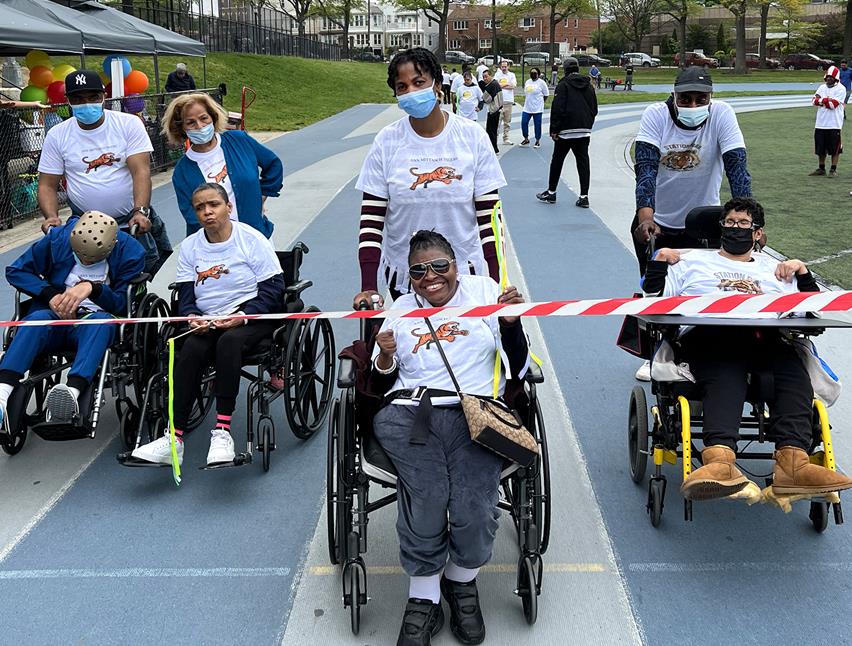
Julie's smile says it all as she rolls her way to first place in the wheelchair competition, bringing victory to the Ann Mittasch Day Hab Tigers.
Day Habilitation Services
WellLife's Day Habilitation (with and without walls) programs, located throughout Queens and Brooklyn, offer a safe and nurturing environment where all participants feel a sense of belonging to a larger community. These services are provided to individuals who live in residential settings, by themselves or with family. The programs include purposeful and meaningful activities designed to foster the acquisition of skills, appropriate behavior, greater independence, and personal choice.
Individuals are provided with the specific skills training needed, ranging from personal grooming and meal preparation to assistance with medication administration (walled programs only) and housekeeping, support for independence in travel, transportation, and development of social skills, leisure skills, self-advocacy, informed choice skills, and more.
For more information about WellLife Network's day habilitation, residential, and entitlement services for individuals with intellectual and developmental disabilities, please visit our website by clicking the link below.






